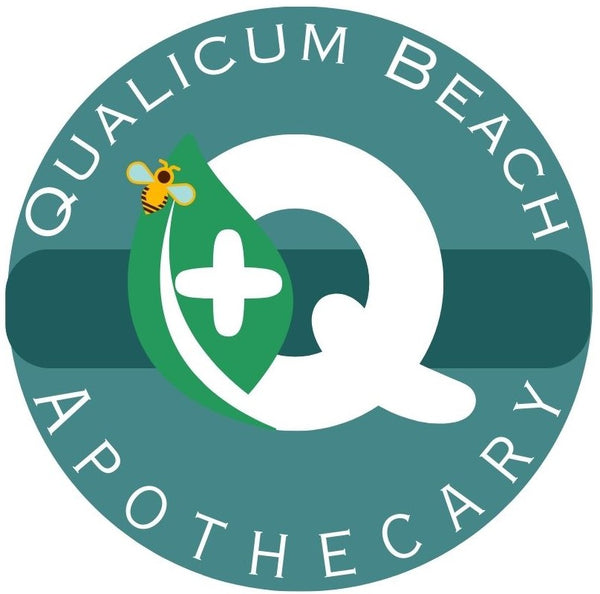
Bile: What Is It? What does It Do? Might I Need it?
Share
Bile is manufactured in the liver and is a liquid composed of mostly bile acids and bile salts, cholesterol, bilirubin, alkaline buffers such as potassium, sodium and bicarbonates, as well as toxins. You make approximately one litre a day and 50% is concentrated and stored in the gallbladder (Spoiler Alert for those without a gallbladder).
Bile is released into the small intestine by way of the bile duct, where it breaks down fats, neutralizes the contents from the stomach to protect the colon and assists in the absorption of your fat-soluble vitamins (A, D, E & K), Omega fatty acids, phytonutrients (lutein, lycopene, turmeric, etc.) and mono-fatty acids.
But, bile does other important jobs other than just breaking down fats and proteins, so we can absorb them and they won’t damage our colon. Bile also acts as a carrier. Toxic substances, hormone metabolites and excess cholesterol from the body is put into bile when it’s made, so that these substances can be taken to the colon and eliminated during the eating process. In the colon, your probiotics then act upon this mixture and separate the toxins from the bile, sending them through the colon and out, while the separated-out bile is further broken down and reabsorbed back into the body.
How Do I Know I Need Bile?
Without adequate bile, after eating dairy, proteins and fats (this will not occur if you are a vegetarian because your diet is primarily sugar/water soluble vitamins/minerals and the need/benefits of bile will be minimal and that includes the elimination of toxins and cholesterol) you will experience a feeling of bloating, heaviness, gas, nausea, acid reflux, pain and tightness on the right side of the abdomen, where your gallbladder is. Toxins and excess cholesterol will remain in the liver longer causing congestion and impaired function, exacerbating the problem. Bile is also needed for proper weight loss, so weight gain is a symptom of a bile shortage, because a functioning gut/liver is required for the breakdown and utilization of fat. These symptoms can last longer than 24 hours and can appear to be chronic and permanent, depending upon meal frequency and severity of the bile short-fall.
If this situation persists and degrades further, the gallbladder will become congested and inflamed (with the possible loss of function), often resulting in headaches/migraines, severe neck, back and shoulder pain, excruciating pain and tenderness on the right side of the abdomen, as well as fatigue, which is a result of the loss of nutrients/energy from food that couldn’t get broken down properly. The loss of nutrients eventually produces nutritional deficiencies that create other problems, such as anxiety. There is also the damage on the colon which can result in IBS, Diverticulitis, rectal/colon cancer and other long-term conditions.
If you have had gallbladder surgery, bile and pancreatic enzyme production will be inadequate for those with a complete diet and it is wise to take both after a meal. If you are beginning Keto or wish to add more protein and fat into your diet you will need to take bile until your body can make the adjustment. With age you likely need more bile, especially if in the past you ate primarily low fat, cooked and/or processed foods. If you are a vegetarian who wants to add fish, eggs etc. into your diet to get the fat-soluble vitamins, you will need bile and perhaps for some time until you adjust. Everyone is a result of their past diet, so needs vary.
So, Who Needs Bile?
- Anyone who experiences bloating, heaviness, gas, nausea and cramps in their gut after they eat
- Pain and tightness on the right side of the abdomen after eating (can become chronic)
- Those with acid reflux
- People with poor diets: high-caloric intake from carbs, sugars, fruits, saturated fats and alcohol
- Anyone with food allergies and intolerances
- Celiac disease with gallstones
- Those with inflammation of the gallbladder and pancreas
- Individuals who are obese and/or have blood sugar disorders
- People living without a gallbladder or prone to gallstones
- Those diagnosed with a fatty liver
- Those who indulge in high fat meals and are not living a Ketogenic lifestyle
- Individuals shifting to a Ketogenic lifestyle
- People on a weight-loss program
- Those taking supplementations of Omega oils, fat soluble vitamins and/or phytonutrients
- Those on prescription drugs (impairs liver function)
And Why, Again?
- Relieves abdominal bloating, gas, cramps and fullness after eating
- Supports digestion, even without a gallbladder
- Facilitates proper digestion of fats
- Curbs or eliminates acid reflux symptoms
- Aids in absorption of fats and fat soluble nutrients
- Aids in feeling satisfied after eating
- Promotes regular bowel movements
- Helps the cleansing of toxins/fermented fibre from the GI track
- Helps to maintain healthy cholesterol levels
- Helps remove toxins from the liver
- Supports healthy liver and gallbladder function
- Increases the absorption of the necessary fats for heart, brain and eye health
- Boosts fat soluble nutrient absorption and can reduce fat cells to support weight loss
Link to buy Bile at Qualicum Beach Apothecary:
https://kimandersen.ca/products/keto-bile-force?_pos=1&_psq=bile&_ss=e&_v=1.0
References
European Journal of clinical investigation. April 2017; 47 (4) p. 328-333.
Prairie Naturals. Bile force: Potent, Effective, Fat Digesting. 2023.
